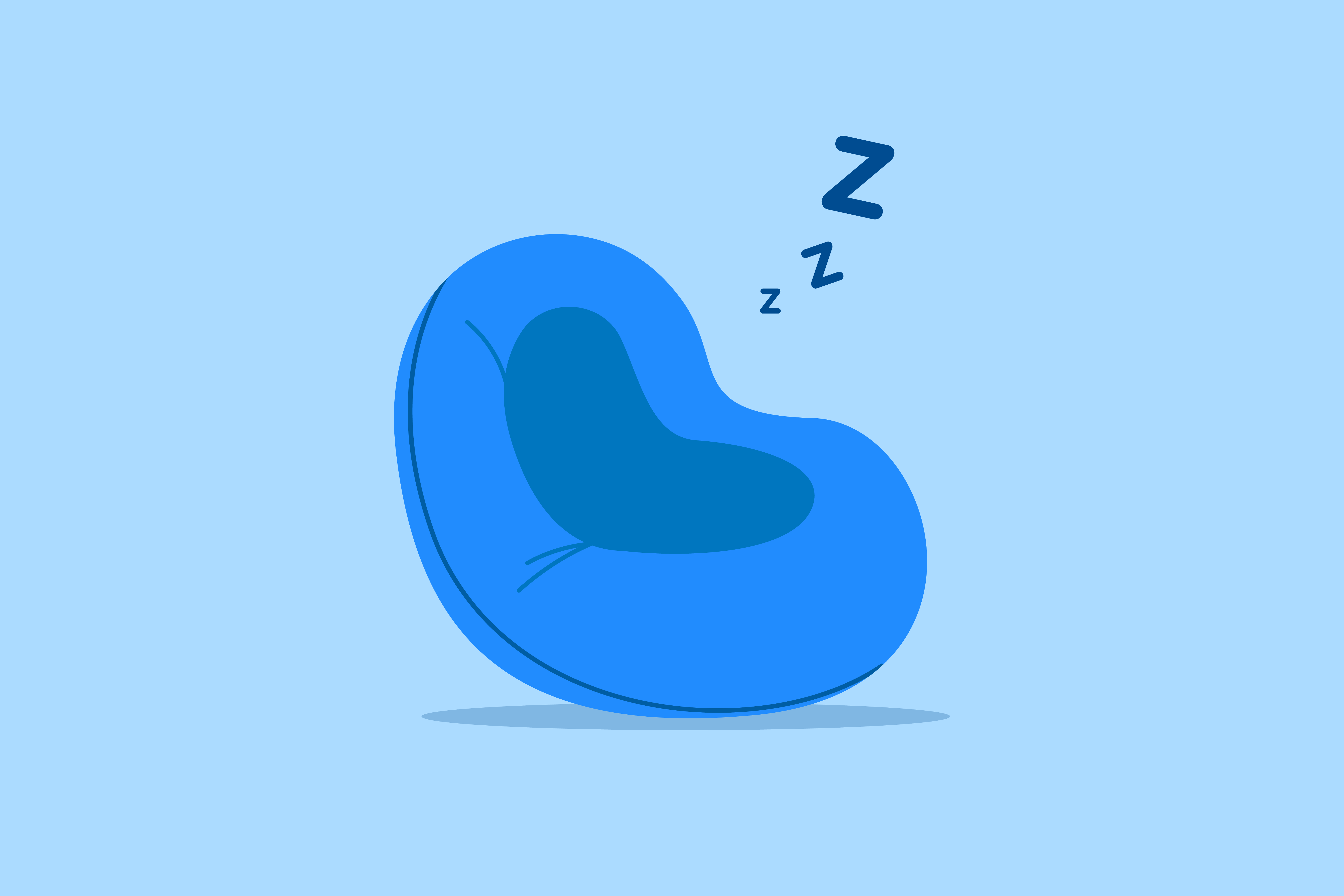Key Takeaways
- Understanding the Triggers: Identifying the causes of nocturnal itching, such as dry skin, hormonal changes, or underlying health conditions, is crucial for effective treatment and relief.
- Effective Treatment Options: Utilizing treatments like anti-itch creams, cool compresses, and good skincare practices can provide immediate relief and improve sleep quality for those experiencing nighttime itchiness.
- Seeking Medical Attention: Persistent or severe itching, accompanied by symptoms like rash or impacting daily life, warrants medical attention to identify underlying conditions and tailor appropriate treatments for long-term relief.
Do you experience itchy skin at night? Nocturnal itching can be a real nuisance, disturbing your sleep and leaving you feeling restless. But fret not, relief is within reach.
In this article, we will explore the causes of itchy skin at night and provide effective treatments to help you find the soothing relief you need.
Nighttime itching can have various triggers, including dry skin, skin conditions, and underlying health issues. We’ll delve into each of these factors and explain how they contribute to the itchiness you experience.
If you’re tired of restless nights due to itchy skin, read on to discover how you can relieve and soothe your skin, so that you can enjoy a well-deserved good night’s sleep. Let’s banish the itch and reclaim your tranquility!
Common Causes of Itchy Skin at Night
Nocturnal pruritus, also known as nighttime itching, is a common condition that affects many individuals. It can be caused by various factors, including chronic skin conditions like atopic dermatitis, dry skin, and irritants. Experiencing itchy skin at night can be both frustrating and disruptive to your sleep.
Identifying the specific cause of your itchy skin at night is important in determining the most appropriate treatment for relief. By addressing the underlying factors, you can soothe your skin and improve your overall sleep quality.
Change in Body Temperature
Your body naturally warms up at night to keep you cozy. This can make your skin feel itchy due to increased blood flow near the surface.
Hormonal Changes
Fluctuations in hormone levels, such as those that occur during pregnancy, menopause, or when trying to sleep after a hysterectomy, can cause dryness and itchiness in the skin.
Underlying Health Conditions
Kidney or liver disease can contribute to nighttime itchiness. These conditions affect the body’s ability to filter toxins, leading to skin irritation and itching.
Sometimes, itching, especially at night, can indicate serious problems like liver or kidney disease, HIV, or certain cancers like leukemia and lymphoma. It can also come from nerve issues such as diabetic neuropathy (nerve damage from diabetes), multiple sclerosis, or shingles.
Sensitive Skin
Some individuals have naturally sensitive skin, which can react to various irritants, including certain fabrics or skincare products. This can result in nighttime itchiness.
Insect Bites
Mosquitoes, bed bugs, and other insects can leave behind itchy bites. These bites are often more noticeable at night when you’re trying to sleep.
See also:
- What Do Bed Bugs Look Like?
- What Attracts Bed Bugs and How to Prevent Them
- How to Get Rid of Bed Bugs in a Mattress
- How to Get Rid of Mosquitos in the Bedroom
- How to Get Rid of Scabies From Mattress
- Should I Be Concerned About a Tick in Bed?
Treating Itchy Skin at Night
When it comes to finding relief for itchy skin at night, there are a variety of effective treatments available. By applying cool compresses, using anti-itch creams or lotions, and practicing good skin care, you can effectively treat itchy skin at night.
Whether you prefer over-the-counter options or natural remedies, you have several choices to help alleviate the itchiness and promote a good night’s rest.
Anti-Itch Creams and Lotions
One commonly used remedy for itchy skin at night is anti-itch creams or lotions. These products are designed to provide immediate relief by soothing the skin and reducing the urge to scratch.
Look for creams that contain ingredients like hydrocortisone or calamine to help calm irritated skin.
Cool Compresses
Cool compresses are another effective way to soothe itchy skin at night. Simply dampen a clean cloth with cool water and gently apply it to the affected areas for a few minutes. The cool temperature helps relieve itching and can provide instant relief.
Skin Care Practices
In addition to specific treatments, adopting good skin care practices can also help alleviate itchy skin at night. You can construct a daytime and nighttime skin routine that ensures you keep the largest organ, your skin, in good health.
Avoid using harsh soaps or hot water as these can further irritate the skin. You may want to be careful about practicing sauna before bed, too.
Instead, opt for gentle cleansers and lukewarm water to cleanse your skin. Moisturizing regularly, especially after bathing, can also help keep your skin hydrated and reduce itchiness.
Have the Right Mattress and Bedding
Changing your sheets and mattress can help alleviate itchy skin at night by reducing exposure to allergens, dust mites, and other irritants that can accumulate over time. Regularly washing your sheets in hot water and using hypoallergenic, breathable materials like cotton or bamboo can minimize skin irritation.
Additionally, replacing an old mattress that may be harboring allergens or investing in a hypoallergenic mattress cover can further contribute to a cleaner, more comfortable sleep environment that is less likely to trigger itchy skin.
Tips to Relieve Itchy Skin at Night
If you’re experiencing itchy skin at night, there are several home remedies and treatments that can provide relief.
Hydrating your skin is also crucial in managing nighttime itchiness. Dry skin can exacerbate itchiness, so make sure to moisturize regularly. Opt for a fragrance-free moisturizer that is suitable for sensitive skin.
Additionally, exploring natural remedies and lifestyle changes can help alleviate itchy skin at night. Some natural remedies include applying aloe vera gel Verified Source National Library of Medicine (NIH) World’s largest medical library, making biomedical data and information more accessible. View source or chamomile Verified Source National Library of Medicine (NIH) World’s largest medical library, making biomedical data and information more accessible. View source to the affected areas, as these have soothing properties.
Making lifestyle changes like avoiding hot showers, using gentle soaps, and wearing loose-fitting clothing can also help reduce nighttime itchiness.
Remember, it’s important to consult with a healthcare professional if your itchy skin persists or worsens despite trying these remedies. They can provide further guidance and recommend additional treatments if necessary.
When to Seek Medical Help for Itchy Skin at Night
If you experience itchy skin at night, it is often a minor annoyance that can be managed with home remedies and over-the-counter treatments.
However, in some cases, nighttime itchiness may be a symptom of an underlying condition or a sign of more serious health issues. It’s important to recognize when it’s appropriate to consult a healthcare professional for further evaluation and guidance.
Seek medical help if you experience any of the following symptoms.
1. Persistently Itchy Skin
If your itchiness continues for an extended period or does not improve with over-the-counter treatments, it may be indicative of an underlying condition. Consulting a healthcare professional can help identify the cause and provide appropriate treatment.
2. Rash or Skin Lesions
If you develop a rash or notice any unusual skin lesions accompanying your nighttime itchiness, it’s crucial to seek medical attention. These symptoms may be a sign of a more serious skin condition that requires medical intervention.
3. Impact on Daily Life
If your itchy skin at night significantly affects your daily life, disrupts your sleep, or causes distress, it’s time to consult a healthcare professional. They can assess your condition comprehensively and recommend appropriate measures to improve your quality of life.
4. Underlying Health Conditions
If you have an underlying health condition that is known to cause itching, such as:
- Kidney disease Verified Source National Library of Medicine (NIH) World’s largest medical library, making biomedical data and information more accessible. View source
- Liver disease Verified Source National Library of Medicine (NIH) World’s largest medical library, making biomedical data and information more accessible. View source
- An overactive thyroid or hyperthyroidism Verified Source National Library of Medicine (NIH) World’s largest medical library, making biomedical data and information more accessible. View source
It’s essential to discuss your symptoms with a healthcare professional. They can help manage your condition effectively and address any related concerns.
FAQs
How do I stop my body from itching at night?
Start by maintaining a consistent bedtime routine and ensuring your sleeping environment is cool and well-ventilated. Use hypoallergenic bedding and clothing, and consider applying a fragrance-free moisturizer or lotion before bedtime. Dry skin is a common cause of itching, especially during colder months or in environments with low humidity.
If itching persists, consult with a healthcare professional to identify any underlying skin conditions or allergies that may be contributing to the issue.
Why do I get itchy when I lay in bed?
Itching in bed can be attributed to various factors, including dry skin, irritants in bedding materials, or even allergic reactions to laundry detergents. Additionally, certain skin conditions like eczema or psoriasis may worsen at night due to changes in temperature and humidity.
Identifying the specific cause of your itching can help you tailor an effective solution, whether it’s through skincare adjustments and other lifestyle changes or seeking medical advice.
When should I be worried about itching?
Persistent or severe itching should be a cause for concern and prompt a visit to a healthcare professional. Itching accompanied by other symptoms such as rash, swelling, or difficulty breathing may indicate an allergic reaction or underlying medical condition that requires immediate attention.
If the itching interferes with your daily life or sleep, seeking medical advice can help determine the cause and appropriate treatment.
What does diabetic itching feel like?
Diabetic itching, often associated with conditions like diabetic neuropathy, can manifest as a tingling or crawling sensation on the skin. It may be accompanied by dry skin and is often more pronounced in the lower extremities.
If you have diabetes and experience persistent itching, especially if it’s disrupting your sleep or daily activities, consult with your healthcare provider for proper evaluation and management.
Can anxiety cause itching at night?
Yes, anxiety can contribute to itching, especially at night. Stress and anxiety can activate the body’s stress response, releasing chemicals that may trigger itching sensations. Additionally, anxiety can worsen existing skin conditions like eczema or psoriasis, intensifying nighttime itching.
Managing stress through relaxation techniques, proper sleep hygiene, and seeking support from mental health professionals can help alleviate anxiety-related itching.
Conclusion
Dealing with itchy skin at night can be a frustrating experience that disrupts your sleep and overall well-being. However, there are steps you can take to find relief and improve your sleep cycle. By understanding the causes of nighttime itching and implementing effective treatments, you can alleviate the discomfort and enjoy a more restful sleep.
If your itchy skin persists or worsens, it’s important to consult with your healthcare provider. Persistent nighttime itchiness may be a sign of an underlying health condition that requires specialized treatment. Your healthcare provider can conduct tests, such as blood tests, and provide further guidance based on your specific situation.
With the right knowledge, treatment, and self-care, you can achieve relief from itchy skin at night and improve your overall quality of sleep. Prioritize your skin health and address any underlying issues to restore comfort and enjoy a peaceful night’s rest.
About the author
Mitchell Tollsen is a graduate student and a freelance writer who’s contributed to the Early Bird blog for three years. Mitchell’s always been fascinated by the science of sleep and the restorative processes our bodies undergo when at rest. The self-titled “Sleep Expert” is always looking for ways to improve his shut-eye, and throughout the years has implemented numerous lifestyle changes and tried dozens of sleep-promoting gadgets to determine the best ways to truly get better rest.
View all posts





